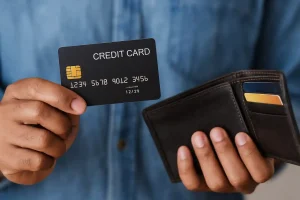Prepaid cards in South Africa have gained popularity as a convenient financial tool for a variety of transactions. These prepaid solutions offer numerous benefits, making them an appealing option for different users. Understanding how these cards function and when to utilize them can help you leverage their advantages effectively.
In this blog post, we will delve into the mechanics of prepaid cards, their applications, and the scenarios where they are most beneficial. By the end of this article, you will be equipped with the knowledge to make informed decisions about using these cards. Whether you’re a frequent traveler, a parent, or simply someone looking for a budgeting tool, prepaid cards can offer the flexibility you need.
How prepaid cards work

A prepaid card, as the name suggests, requires you to load money onto it before you can use it for purchases. This is different from credit cards, where you spend money you don’t yet have and pay the bill later. Prepaid cards function on the amount pre-loaded, and you can only spend as much as you have put on the card.
These cards can be used for almost any transaction where regular debit or credit cards are accepted. They are often issued by major financial institutions and utilize networks like Visa or MasterCard. This ensures that they are widely accepted both locally and internationally. When you make a purchase, the amount will be deducted from the balance on the card.
You can reload the card when the balance runs low, either online, at an ATM, or at specific retail locations. This reloadable feature makes prepaid cards a sustainable option for long-term use. Moreover, they are often safer than carrying cash, as they can be easily deactivated if lost or stolen.
Security and convenience
Prepaid cards offer significant advantages, particularly in terms of security, budgeting, and convenience:
- Security: Prepaid cards provide protection against loss or theft. They typically come with a PIN and can be deactivated if lost, ensuring the safety of your funds.
- Debt-Free Spending: Since you can only spend the amount loaded onto the card, prepaid cards eliminate the risk of debt. This feature is valuable for budgeting and controlling expenses, making them popular choices for parents teaching children financial responsibility.
- Convenience: Prepaid cards are versatile for both online and offline transactions. They are widely accepted for various purchases, including online shopping, hotel bookings, and car rentals, offering convenience and flexibility in financial transactions.
These benefits highlight why prepaid cards are favored for their security features, debt-free spending capability, and convenience in everyday financial activities.
Reload options and fees
Prepaid cards offer various reload options, enhancing their versatility. You can add funds through online transfers, direct deposits, ATMs, or specific retailers, each with associated fees that vary by method and card issuer.
While initial setup fees are typically minimal, reloading costs may apply and vary. It’s essential to review terms carefully to understand these fees.
Opting for reload methods with lower fees maximizes card utility. Some cards may offer promotions or discounts for specific reload methods, providing additional value for users.
When to use prepaid Cards
Prepaid cards offer significant advantages in various scenarios:
- Frequent Travelers: Prepaid cards provide a safe and convenient way to manage expenses while traveling, reducing the need to carry large sums of cash. They are ideal for budgeting travel expenses, as you can preload the exact amount you plan to spend, ensuring financial control and security.
- Gifting: Prepaid cards are a secure and thoughtful alternative to cash or checks when giving gifts. They allow recipients the flexibility to use the funds as they wish, while ensuring the money is stored safely on a card that can be deactivated if lost or stolen.
These scenarios highlight the versatility and practicality of prepaid cards in managing personal finances and facilitating secure transactions.
Travel benefits
Traveling with prepaid cards offers several advantages. They reduce the need to carry large amounts of cash, enhancing security while traveling. Prepaid cards, especially those from major networks like Visa or MasterCard, are widely accepted worldwide.
Moreover, prepaid cards often provide favorable exchange rates and lower fees for international transactions compared to traditional debit or credit cards. This can lead to significant cost savings when traveling abroad. Some cards include additional perks like travel insurance or reward points, enhancing their value for travelers.
Another key benefit is budgeting. With a prepaid card, you can only spend the amount pre-loaded onto the card, helping you stick to your budget while abroad. This simplifies financial management and enhances the travel experience.
Gift giving and budgeting
Prepaid cards serve multiple purposes, making them ideal for gift giving and personal budgeting. As gifts, they offer flexibility since recipients can choose how and where to use the funds, making them a versatile option.
For personal finance management, prepaid cards provide a convenient way to stick to a budget. You load a specific amount onto the card, enabling better control and easier expense tracking. This is beneficial for teaching children about money management, offering practical experience without debt risks.
Additionally, many prepaid cards offer mobile apps for real-time spending tracking, setting limits, and receiving alerts. These features enhance budgeting and financial planning effectiveness.



